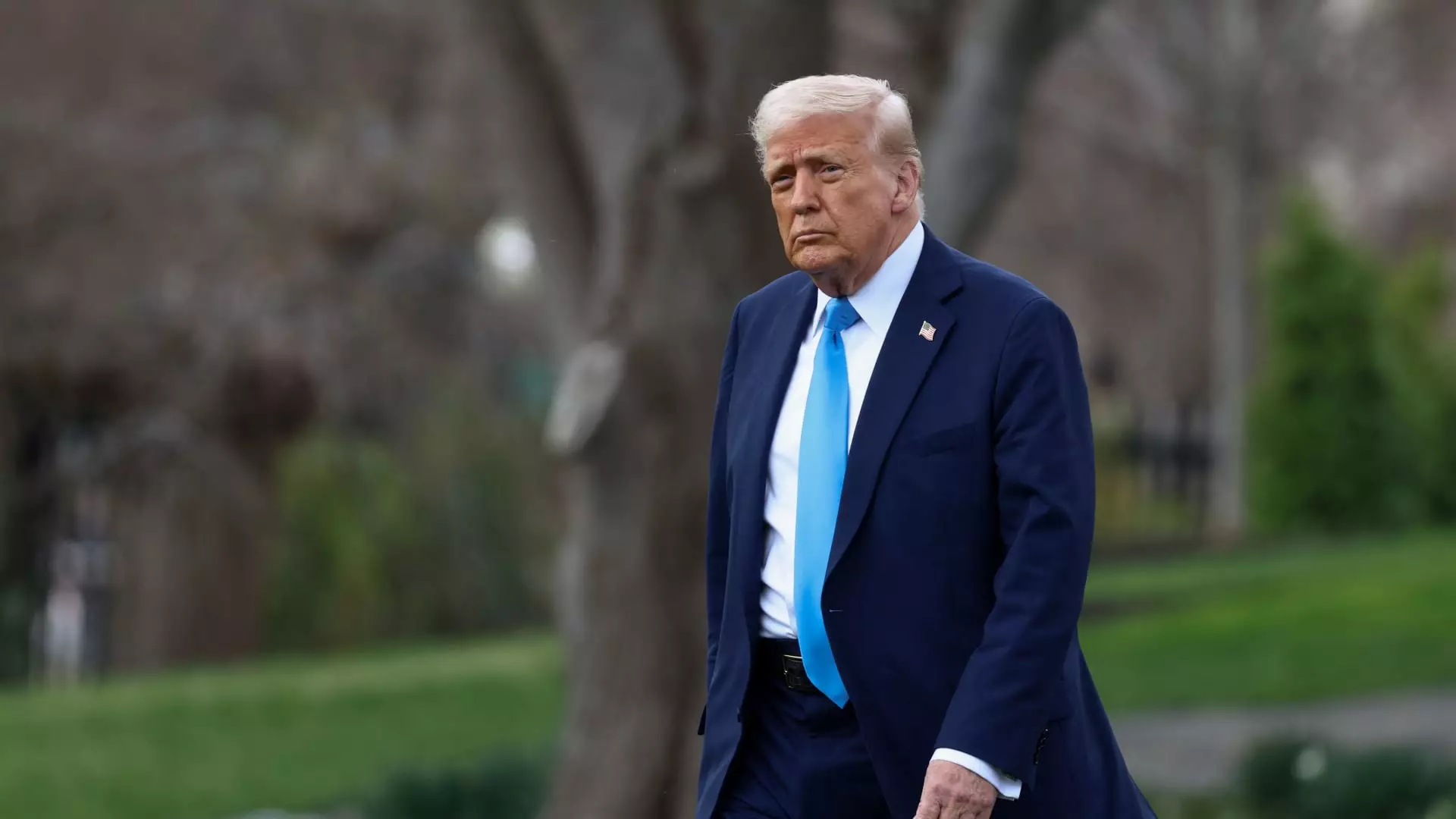In the tumultuous landscape of international relations, the recent comments from former President Donald Trump regarding Russian President Vladimir Putin’s disparagement of Ukrainian President Volodymyr Zelenskyy send shockwaves across the diplomatic community. Trump’s overt expressions of anger, described as “very angry” and “pissed off,” may appear to signify strength, but instead, they reveal a troubling tendency toward brinksmanship that could ultimately jeopardize global stability. By framing international diplomacy through the lens of personal grievances and emotional reactions, Trump champions a confrontational rather than cooperative approach to foreign affairs.
Russia’s Unsurprising Maneuvering
Putin’s challenge to Zelenskyy’s credibility is not an unforeseen development; it is merely a continuation of Russia’s long-standing strategy to destabilize Ukraine and diminish its sovereignty. Calling for a transitional government that may oust Zelenskyy is a classic play from the Kremlin’s playbook, stirring discontent in a nation already beleaguered by an ongoing war. Trump’s feelings of indignation, while relatable on a human level, ignore the complexities of a conflict characterized by decades of historical grievances, power dynamics, and geopolitical stakes. Reacting to verbal provocations without a strategic framework could lead to hasty decisions that escalate tensions rather than resolve them.
The Threat of Economic Sanctions: Harsh Measures or Empty Promises?
Trump’s threat to impose secondary tariffs on Russian oil represents a double-edged sword of economic warfare. While such measures may garner domestic support from those opposing Putin, they could deepen the humanitarian crisis in Ukraine and alienate potential allies. Imposing a 25% to 50% tariff ostensibly aims to pressure Russia but overlooks the potential for increased energy prices that would harm countless consumers and businesses in the United States and beyond. Punitive tariffs risk becoming mere rhetorical flourishes devoid of tangible impact on the conflict or on the lives of ordinary Ukrainians suffering from the consequences of war.
The Dichotomy of Anger and Cooperation
The juxtaposition of Trump’s expressed indignation with his insistence on maintaining a “very good relationship” with Putin highlights a key contradiction within his foreign policy approach. How can one establish a productive rapport with a leader while simultaneously threatening severe economic consequences? The reality is that effective diplomacy requires nuanced understanding, strategic thinking, and a commitment to dialogue over discord. Instead, Trump’s emotional reactions highlight a propensity toward personal vendettas over sober, patient engagement—an unfortunate tendency that can derail efforts to restore peace in volatile regions.
Detrimental Rhetoric: Weighing Down Future Dialogues
The rhetoric surrounding potential military actions, as articulated in Trump’s comments about Iran, further muddies the waters. Threatening “bombing the likes of which they have never seen before” is a stark reminder of how careless comments can fuel existing tensions and provoke retaliation. Such statements undermine the credibility of negotiations, pushing adversaries toward defensive postures rather than collaborative solutions. Engaging in fiery proclamations may resonate with political supporters, but they also diminish the possibility of trust—an essential component for any successful diplomatic dialogue.
The Cycle of Tit-for-Tat Diplomacy
The interplay of escalating threats and counter-threats leads to a dangerous cycle that can spiral beyond control. Reflecting on previous conflicts, one can observe that retaliation often leads to greater turmoil rather than resolution. Trump’s comments signal a worrying inclination to escalate tensions rather than focus on de-escalation, which could increase the risk of miscalculations and unintended consequences. International relations should instead embrace diplomacy marked by restraint, where leaders seek understanding rather than merely amplifying grievances.
In the context of Trump’s vocal outrage, the question must be asked: can emotional reactions play a constructive role in foreign policy? The evidence suggests otherwise. As global challenges become increasingly complex, leaders ought to prioritize strategic foresight over emotional expression. Understanding the art of diplomacy—where empathy, negotiation, and collaboration take precedence over hostility—could forge a more peaceful international landscape. The time may be ripe for a cautious rethinking of how emotional leadership shapes our geopolitical future, steering away from anger and towards proactive engagement that fosters lasting solutions.

Leave a Reply